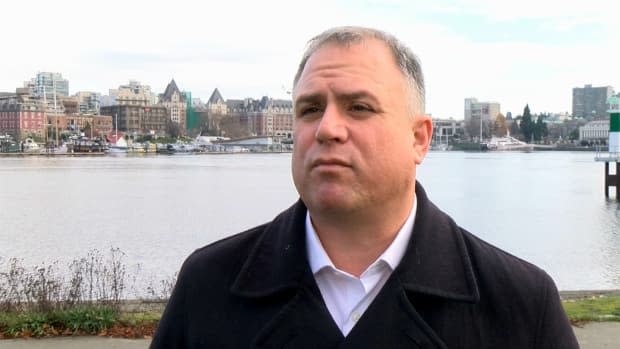Feds' handling of Big Bar landslide cleanup needs more scrutiny, NDP critic says
The federal NDP critic for fisheries is calling for more oversight of the cleanup project at B.C.'s Big Bar landslide following news of tripling contract costs and worker safety concerns.
Construction giant Peter Kiewit Sons' contract to clear the slide from the Fraser River was awarded in December at $17.6 million, but has since been amended more than a dozen times and is now worth more than $52.5 million.
Courtenay-Alberni MP Gord Johns told CBC he's deeply concerned about what's happening on this crucial salmon migration route.
"This is really alarming to hear the cost overrun — and the problem is still not fixed," Johns said.
"This needs some scrutiny and some oversight."
Apart from the cost of the clean-up, Johns said he wants an opportunity to ask "difficult questions" about worker safety.
Earlier this month, three rocks fell unexpectedly from a slope above where crews have been working. It happened overnight and no one was hurt, but WorkSafeBC is now investigating.
Because of interruptions to Parliament caused by the COVID-19 pandemic, opposition parties have had few opportunities to question Fisheries and Oceans Canada (DFO) about the Big Bar project or prospects for Pacific salmon in general.
Johns said concerns about the landslide were the driving reason why the New Democrats pushed to have the Standing Committee on Fisheries and Oceans added to a list of parliamentary committees now meeting virtually.
"This is the biggest slide in a hundred years ... so it's really important and a huge priority for us," he said.
"The cost of this essential work seems to have been seriously underestimated by the government. The department knew about the risk and access issues from the outset and they should have got it right."
Efforts 'stalled' on landslide project
The Big Bar landslide dumped 75,000 cubic metres of rock into the Fraser in a remote area north of Lillooet some time in late 2018, but it wasn't reported until June 2019.
The landslide completely blocked migration routes for several salmon runs, and prompted officials at multiple levels of government as well as local First Nations to organize a rescue mission that saw thousands of salmon lifted by helicopter across the rocks that blocked their migration route.
But a large number of those salmon died before reaching their spawning grounds, and federal scientists have warned some chinook and sockeye populations now face a "meaningful chance of extinction" as a result.
Despite the serious threat to salmon survival, no debris from the landslide was removed from the river in 2019.
Though Kiewit has made some progress on blasting away parts of the obstruction from the river, it now appears the blockage won't be cleared away in time for the 2020 salmon migration either.
According to DFO officials, the major reason for the increasing value of Kiewit's contract has been the construction of a fish ladder and installation of a pneumatic pump system to allow for salmon to move upstream.

"Last summer, we saw … everybody working collectively to try to remedy the disaster that was taking place," Johns said.
"We expected that sense of urgency and that effort to go right into the fall and … it stalled right out."
Johns says he hopes he can bring up his concerns when the fisheries standing committee meets online, which could happen as early as next week.
Meanwhile, Kiewit says it has taken measures to prevent future rock falls on the site and protect worker safety on the Big Bar project, including installing a concrete retaining wall and mesh curtain to catch falling rocks.
But in an interview with the Pacific Salmon Foundation posted online Thursday, DFO project leader Gwil Roberts said there continues to be "extreme rockfall hazard" on the site, even after the new safety measures.
Kiewit is currently awaiting trial on a charge of criminal negligence causing the death of Sam Fitzpatrick, who was killed by a falling rock in 2009 on another Kiewit worksite near Toba Inlet on B.C.'s Sunshine Coast.

